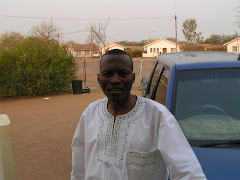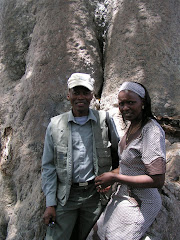BOTSWANA GOVERNMENT’S COMMITMENT ON CHILD PROTECTION
The Government of Botswana ratified various international conventions and instruments dealing with child abuse, neglect, exploitation and violence against children. The Government ratified the World Declaration on the Survival Protection and Development of Children in 1992; the United Nations Convention on the Rights of the Child in 1995; the ILO Minimum Age for Admission to Employment Convention of 1973 in 1999; and the ILO Worst Forms of Child Labour in 1999. The African Charter on the Rights and Welfare of the Child was acceded to in 2001. In addition, the government has enacted or reviewed legislation that deals either directly or indirectly with child abuse, exploitation and violence such as the Children’s Act of 1981, the new Children’s Act of 2009 and the Affiliation Proceedings Amendment Act of 1999, just to name a few.
WHAT IS CHILD PROTECTION?
Chid Protection means the protection of children from violence, abuse, neglect, exploitation and discrimination. It involves, Birth Registration, Child Abuse, Sexual exploitation of children, Trafficking and sale of children, harmful traditional practices, violence and neglect, alternative care, justice for children and child labour.
• Birth Registration: As of 2000 it was estimated that only 59% of births of under 5 year olds were registered in Botswana (MICS 2000) and in some districts more than half of the birth are not registered. The Department of National and Civil Registration (DNCR) routinely collects statistics of births from health facilities across the country and produce annual births and deaths statistics report. Even though 90% of births take place in health facilities it is estimated that only 60% of births are registered.
• Justice for Children system (Juvenile Justice) comprises both (1) State-run justice and law enforcement institutions, including the judiciary (criminal and civil), justice and interior ministries, the police, prisons, criminal investigation and prosecution services and (2) Non-state justice mechanisms, i.e the whole range of traditional, customary, religious and informal mechanisms that deal with disputes at community levels. Cases pertaining to children in conflict with the law (juvenile offenders) will be held in Children’s courts where the media or members of the public will not allowed.
• Sexual exploitation of children includes incest, rape, defilement, child marriages, violence, abuse and commercial sexual exploitation. Information on the prevalence of sexual exploitation and adequacy of systems and structures in preventing, responding and mitigating this issue is extremely limited. Harmful traditional practices that contribute to these violations also need to be assessed and identified to inform advocacy and planning.
The number of cases of sexual abuse, exploitation and violence reported to the Police Services is on the increase in Botswana, although it is also understood that many cases are not reported due to the powerlessness of children. This is also due to the fact that the perpetrators are often the sole breadwinner in the household and to report them would undermine the family income.
• Child Trafficking is the recruiting, transfer, transporting, receipt of persons by means of threats or use of force or other form of coercion, of abduction, fraud, deception, abuse of power, the giving or receiving of payment to achieve the consent of a person having control over another person for the purpose of exploitation. The forms and reasons for trafficking need to be assessed to ensure evidence based planning.
• Child labour: Some background research has been done via the National Labour Force Survey (LFS) (2005/2006) conducted by the Central Statistics Office (CSO). The survey addressed questions on employment of persons aged 7 years and above, and incorporated a specific children’s activities component. The preliminary results released by CSO in December 2006 showed:
- 6.9% (37,936) of the employed population (548,594) are children (aged 7 to 17 years old);
- Male children constitute 60.9% of the employed children (23,109 boys);
- 66.1% of the children (25,093 children) are employed in agriculture, and 22% (8,339 children) in the retail trade;
- Employed children constituted 8.9% of all children aged 7-17 years; and
- 51% of the employed children are aged 7-13 years (19,435 children).
3.4 In order to address issues related to child labour, the National Action Plan towards the Elimination of Child Labour in Botswana (APEC) was developed in 2008. It focuses on cross-cutting actions, actions that relate to and may impact upon all the forms of child labour that have been identified in Botswana. It also focuses on each of the following specific child labour issues:
i. Children doing excessive and inappropriate domestic work
ii. Children working in agriculture
iii. Children used by adults to commit crime
iv. Commercial sexual exploitation of children
v. Children working in the liquor, retail, and informal sectors
vi. Children working on the streets
vii. Orphaned and vulnerable children
viii. Children involved in physical labour at schools
• Alternative care includes kinship care, foster care adoption and placement in suitable institutions of care of children. With the increasing prevalence of HIV/AIDS and resulting numbers of orphans in Botswana, the adequacy of institutions, structures and monitoring processes need to be assessed to inform planning and advocacy.
• Other vulnerable children: Children with disability, indigenous children and those children who are orphaned, living on the streets or in extreme poverty often face double discrimination. They should be identified and recognized in studies in order to inform Policy and legal reform, administration and planning.
Since 1999, the Ministry of Local Government has been implementing the Short Term Plan of Action (STPA) for orphan care in Botswana. In the last quarter there were 49, 000 orphans and 31, 000 needy children registered countrywide by the local authorities. They are supported with food and school uniform. A draft National Policy on Orphans and Vulnerable Children has been completed.
Hope to hear from you…
Saturday, May 9, 2009
Subscribe to:
Post Comments (Atom)











No comments:
Post a Comment